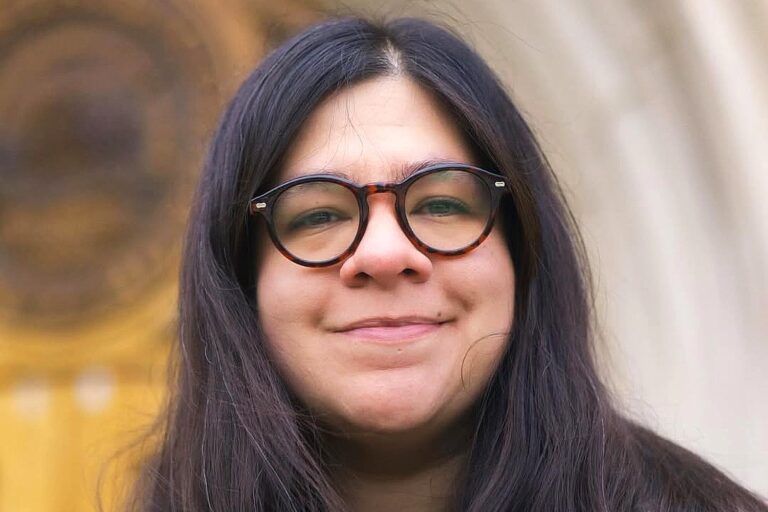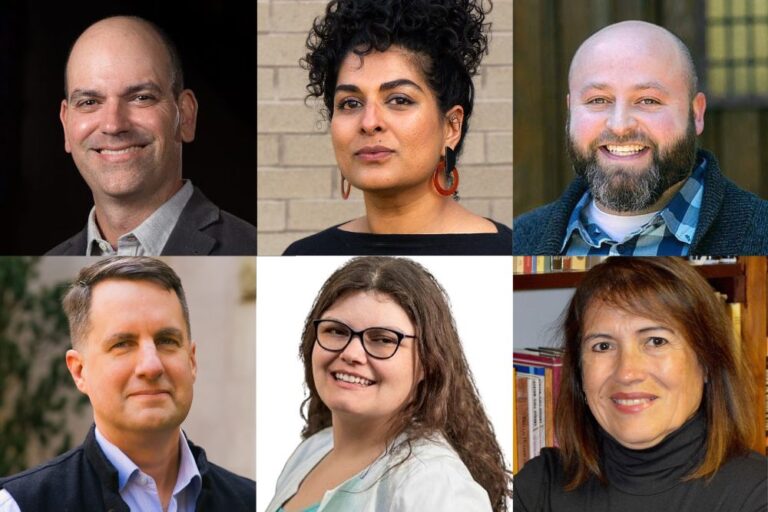Three project teams that include MSU College of Arts & Letters faculty and students were among the 10 teams receiving funding in the 2016 Humanities Without Walls (HWW) Global Midwest Grants. In total, the teams received over $160,000 in grants.
The grants are supported by the Humanities Without Walls consortium, based at the Illinois Program for Research in the Humanities at the University of Illinois at Urbana-Champaign. The consortium is funded by a grant from the Andrew W. Mellon Foundation.
It’s important that we celebrate successes like these as we further develop our emerging grant-writing and mentoring program, and continue fostering sponsored research in the college.
CHRISTOPHER P. LONG
“True to the ideals under which HWW was established, these grants demonstrate the power of the vision and wisdom of arts and humanities scholarship to make a positive difference here at MSU and around the world.” says College of Arts & Letters Dean Christopher P. Long.
“This past fall term, we held grant-writing workshops for our faculty, and the HWW grants help demonstrate the positive results of those efforts. It’s important that we celebrate successes like these as we further develop our emerging grant-writing and mentoring program, and continue fostering sponsored research in the college.”
The MSU-related projects receiving grant funding include:
Growing Up Hmong at the Crossroads ($60,435)
Associate Professor Safoi Babana-Hampton and Assistant Professor Scott Boehm of the Department of Romance & Classical Studies, and Assistant Professor Swarnavel Eswaran-Pillai of the Department of English-Film Studies, the project’s three Co-PIs, along with MSU junior French major Jack Weyhrich, are working with colleagues from Indiana University and the University of Michigan on this documentary film sequel.
The original documentary, Hmong Memory at the Crossroads, weaves the stories of three generations of Hmong refugees in the United States Midwest and France.
“The sequel to the Hmong Memory at the Crossroads documentary is currently in production, tentatively titled Growing up Hmong at the Crossroads,” says project Co-PI Safoi Babana-Hampton. “It will spotlight the Hmong diasporic experience from the perspective of second- and third-generation Hmong.”
Detroit in China: Postindustrial Cities and Urban
Representations in the Midwest and China ($50,000)
Professor Tze-lan Sang, Department of Linguistics, German, Slavic, Asian and African Languages will be working with project PI and MSU Associate Professor of Sociology and Global Urban Studies Ren Xuefei and colleagues from Northwestern University, University of Illinois at Chicago, and the Chicago Tribune on this funded project.
The first part of the Detroit in China research and publication project comparatively examines urban marginality in cities in the Midwest and China. The second part examines the visual representation of postindustrial Detroit and Harbin.
“Detroit in China will be among the first comparative studies on urban transformations in the postindustrial U.S. and China,” says Professor Tze-Lan Sang. “It will contribute to our understanding on urban inequality in both the global South and North. By comparing Detroit with postindustrial urban China, this project critically examines uneven development and marginality in both advanced and emerging economies.”
The New Ethics of Food ($50,418.00)
Project PI and Assistant Professor Gretel Van Wieren is working on The New Ethics of Food with other CAL faculty members Professor Paul Thompson, Associate Professor Kyle Powys Whyte, Associate Professor Stephen Rachman, MATRIX Director Dean Rehberger, College of Arts & Letters Dean Christopher P. Long, and Philosophy student Zachary Piso, along with MSU Associate Professor Helen Zoe Veit, and Librarian Thomas Padilla, and colleagues from the University of Wisconsin-Madison, Pennsylvania State University, and The Ohio State University.
The New Ethics of Food project has two major objectives. The first is to link MSU and other community-based partners in a common commitment to research and dialogue around new ethics of food. The second is to reposition the Midwest as a major force in the global economy and culture, and show how the public humanities can contribute to this work.
“The expected outcomes of The New Ethics of Food project include the development of a Midwest Humanities Network on the new ethics of food, including creation of a digital research and activities nexus,” says Project PI Gretel Van Wieren. “This includes organizing an in-person workshop at MSU to produce materials for the online visual food ethics network and research resources for the Public Philosophy Journal’s “New Ethics of Food” focus.”
About Humanities Without Walls
Humanities Without Walls is a grand experiment in collaboration at scale. Funded by the Andrew W. Mellon Foundation, HWW has 15 partner institutions centered in the Midwest. Participants are engaged in the process of testing big hypotheses through multi-sited research projects that aim to bring humanist expertise to bear on issues of great consequence in the contemporary moment. Learn more:http://www.humanitieswithoutwalls.illinois.edu/index.html


